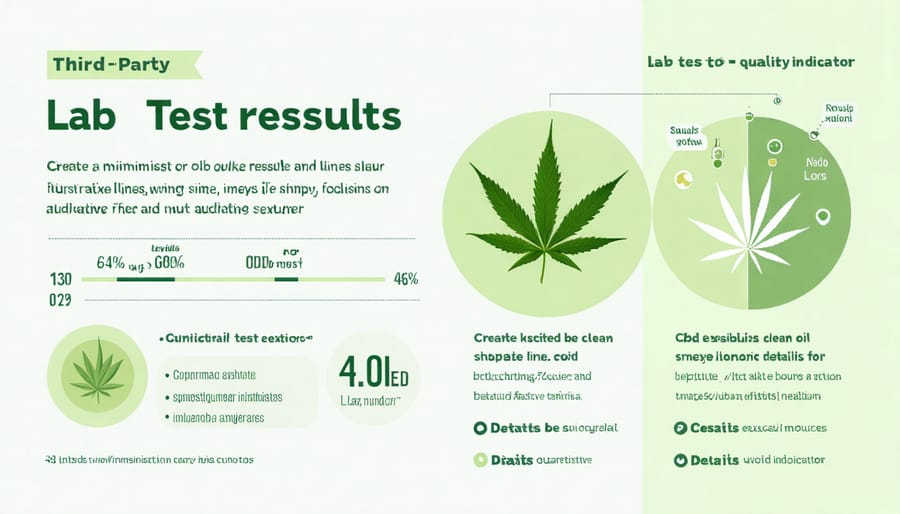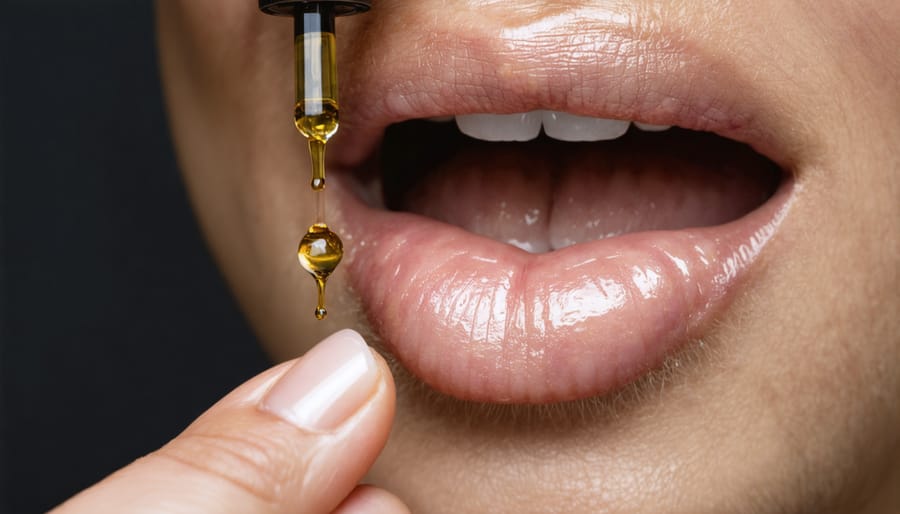CBD oil stands at the forefront of natural wellness solutions, backed by extensive scientific research on CBD showing remarkable potential for managing chronic pain, anxiety, and inflammation. As more people turn to Dopeboo Natural Psychedelics and alternative remedies, CBD oil has emerged as a versatile therapeutic compound that offers relief without the intoxicating effects of traditional cannabis.
Recent clinical studies demonstrate CBD’s ability to interact with the body’s endocannabinoid system, potentially offering benefits ranging from improved sleep quality to reduced seizure frequency in specific conditions. While research continues to unveil new applications, thousands of users already report significant improvements in their daily lives through consistent CBD use.
This natural compound’s growing popularity stems from its dual role as both a preventive supplement and therapeutic aid, offering a promising alternative for those seeking natural solutions to common health challenges. Understanding CBD’s benefits and proper usage is crucial for anyone looking to incorporate this powerful compound into their wellness routine.
How CBD Oil Works in Your Body
The Endocannabinoid System Explained
Your body has a remarkable natural network called the endocannabinoid system (ECS), which plays a crucial role in maintaining balance throughout your body. Think of it as your internal control center, regulating everything from mood and sleep to appetite and inflammation.
This system consists of three main components: endocannabinoids (natural compounds your body produces), receptors that these compounds bind to, and enzymes that break them down. The two primary receptors, CB1 and CB2, are found throughout your body, with CB1 receptors concentrated in your brain and CB2 receptors mainly in your immune system.
When you use CBD oil, you’re supporting this natural system. While CBD doesn’t directly bind to these receptors like THC does, it helps enhance your body’s own endocannabinoids, contributing to the medicinal benefits of cannabinoids. This explains why CBD can have such wide-ranging effects on your well-being, from reducing anxiety to helping manage pain and inflammation.
Understanding how the ECS works helps explain why CBD can be so effective for various conditions, as it works with your body’s natural processes rather than against them.

CBD’s Interaction with Your Body
CBD works by interacting with your body’s endocannabinoid system (ECS), a complex network of receptors that helps maintain balance in various bodily functions. When you consume CBD, it influences two main types of receptors: CB1, primarily found in your brain and nervous system, and CB2, located throughout your immune system and organs.
Unlike THC, CBD doesn’t directly bind to these receptors. Instead, it works more subtly by enhancing your body’s natural endocannabinoids and modifying receptor activity. This interaction helps explain why CBD can affect multiple body systems simultaneously, from mood and sleep to inflammation and pain response.
CBD also influences non-cannabinoid receptors and channels. It interacts with serotonin receptors, which play a role in mood and anxiety, and glycine receptors, which are involved in pain perception. This broad range of interactions explains why CBD shows promise in addressing various conditions while maintaining a favorable safety profile.
Through these mechanisms, CBD helps support your body’s natural ability to maintain balance, or homeostasis, making it a versatile compound for overall wellness.
Proven Benefits of CBD Oil
Pain Management and Inflammation
One of CBD’s most well-documented benefits is its potential to help manage chronic pain and reduce inflammation. Research suggests that CBD interacts with the body’s endocannabinoid system, which plays a crucial role in regulating pain and inflammatory responses. Studies have shown promising results for conditions like arthritis, multiple sclerosis, and general chronic pain.
CBD appears to work by influencing pain receptors and reducing inflammation at the cellular level. A 2020 review of studies found that CBD can help decrease inflammatory markers in the body, potentially providing relief for various inflammatory conditions. Many users report experiencing significant improvement in their pain levels after incorporating CBD oil into their daily routine.
While individual results may vary, clinical evidence continues to support CBD’s anti-inflammatory properties. Athletes and active individuals often use CBD oil to manage exercise-induced inflammation and aid in recovery. Chronic pain patients frequently report that CBD helps them reduce their reliance on traditional pain medications, though it’s important to consult with a healthcare provider before making any changes to an established pain management plan.
The most effective dosage for pain relief varies among individuals, and finding the right amount often requires some experimentation under medical supervision.
Anxiety and Depression Relief
Research suggests that CBD oil may offer significant relief for those struggling with anxiety and depression. Studies have shown that CBD interacts with serotonin receptors in the brain, which play a crucial role in regulating mood and emotional well-being. Many users report feeling calmer and more balanced after incorporating CBD oil into their daily routine.
In clinical trials, CBD has demonstrated promising results in reducing symptoms of various anxiety disorders, including social anxiety, generalized anxiety disorder, and panic attacks. Participants often experience decreased heart rate, reduced racing thoughts, and improved sleep quality. For depression, CBD’s anti-inflammatory properties and impact on brain chemistry may help alleviate symptoms, though more research is still needed.
One notable study published in the Journal of Clinical Psychology found that 79% of participants reported lower anxiety levels after one month of CBD use. While CBD shouldn’t replace prescribed medications without medical supervision, many people find it beneficial as part of their mental health management strategy. The compound’s natural properties and generally mild side effects make it an attractive option for those seeking alternative or complementary approaches to mental wellness.
Sleep Improvement
Research suggests that CBD may help improve sleep quality by addressing underlying factors that contribute to sleep disturbances. Studies have shown that CBD can help reduce anxiety and pain, two common causes of sleep problems. In one notable study, 66.7% of participants reported better sleep within the first month of CBD use.
CBD appears to work with the body’s endocannabinoid system to help regulate sleep-wake cycles. While it doesn’t make you drowsy like traditional sleep medications, it may help create conditions conducive to better rest by promoting relaxation and reducing stress.
Many users report that CBD helps them fall asleep more easily and experience fewer sleep interruptions throughout the night. The compound’s potential anti-inflammatory properties may also help those whose sleep is disrupted by chronic pain conditions.
For optimal sleep benefits, many people find taking CBD oil 30-60 minutes before bedtime works best. However, effects can vary between individuals, and some may need to adjust their timing and dosage to find what works best for them.
Remember that quality and consistency of use are important factors in experiencing CBD’s sleep-supporting benefits.
Other Evidence-Based Benefits
Research has revealed several proven medical benefits of CBD oil beyond anxiety and pain management. One of the most significant breakthroughs is in treating epilepsy, particularly rare forms like Dravet syndrome and Lennox-Gastaut syndrome. In fact, the FDA-approved medication Epidiolex, which contains CBD, has shown remarkable success in reducing seizure frequency.
CBD’s anti-inflammatory properties have also demonstrated promise in treating skin conditions like acne, eczema, and psoriasis. Studies indicate that CBD can help regulate oil production in the skin and reduce inflammation, making it a valuable addition to skincare routines.
Additionally, research suggests CBD may help with sleep disorders, offering a natural alternative for those struggling with insomnia. Early studies also point to CBD’s potential in treating neurodegenerative conditions like Alzheimer’s and Parkinson’s disease, though more research is needed in these areas.
For those dealing with substance abuse, CBD has shown promise in reducing cravings and anxiety associated with addiction recovery, particularly for opioid-dependent individuals.
Finding the Right CBD Oil
Quality Indicators
When shopping for CBD oil, there are several key indicators of quality that you should look for to ensure you’re getting a safe and effective product. First, always check for third-party lab testing results, also known as Certificates of Analysis (COAs). These reports verify the CBD content and confirm that the product is free from harmful contaminants like pesticides, heavy metals, and residual solvents.
Look for products made from organic hemp grown in the United States or Europe, where farming practices are strictly regulated. The extraction method matters too – CO2 extraction is considered the gold standard, producing the purest and safest CBD oil.
Pay attention to the ingredient list. Quality CBD oils should have simple, natural ingredients without unnecessary additives or artificial preservatives. The packaging should clearly state the CBD concentration per serving and specify whether it’s full-spectrum, broad-spectrum, or CBD isolate.
Price can be an indicator of quality, but it shouldn’t be your only consideration. Extremely low-priced products might use inferior ingredients or cut corners in production. Look for brands that are transparent about their sourcing and manufacturing processes, provide detailed product information, and have positive customer reviews from verified buyers.
Finally, check that the brand has responsive customer service and a clear return policy, which often indicates a company’s commitment to product quality and customer satisfaction.


Dosage Guidelines
Determining the right CBD oil dosage is a highly individual process that depends on several factors, including your body weight, the condition you’re treating, and your individual body chemistry. As a general rule of thumb, most people start with 20-40mg of CBD per day, split into smaller doses throughout the day.
For beginners, it’s recommended to start with a low dose of 5-10mg of CBD and gradually increase it until you achieve the desired effects. This “start low and go slow” approach helps you find your optimal dosage while minimizing the risk of side effects.
To calculate your initial dose, you can use your body weight as a baseline: take 1-6mg of CBD for every 10 pounds of body weight. For example, if you weigh 150 pounds, you might start with 15-90mg per day.
Keep in mind that CBD oil products come in different concentrations, so pay attention to the amount of CBD per serving listed on the product label. Many CBD oils come with graduated droppers that make measuring doses easier.
Track your dosage and effects in a journal to help identify your optimal amount. If you’re taking CBD for a specific medical condition, consult with a healthcare provider who can provide personalized dosing recommendations based on your situation and other medications you may be taking.
Safety and Side Effects
While CBD is generally considered safe for most people, it’s important to understand potential risks and side effects before incorporating it into your wellness routine. Common side effects may include drowsiness, dry mouth, changes in appetite, and mild digestive issues. These effects are typically mild and temporary, but they’re worth considering, especially when first starting CBD oil.
CBD can interact with certain medications, particularly those metabolized by the liver. This is because CBD may affect how your body processes these medications, similar to how grapefruit interacts with some drugs. If you’re taking any prescription medications, it’s crucial to consult with your healthcare provider before starting CBD oil.
Some users might experience changes in mood, fatigue, or slight changes in blood pressure. While these effects are generally minimal compared to traditional pharmaceuticals, understanding the long-term effects of cannabis and CBD products is still an ongoing area of research.
Quality and purity of CBD products are crucial safety considerations. Choose products from reputable manufacturers who provide third-party lab testing results. These tests verify the CBD content and ensure the product is free from harmful contaminants like pesticides and heavy metals.
Pregnant or nursing women should avoid CBD oil, as there isn’t enough research to confirm its safety during pregnancy or breastfeeding. Similarly, individuals with liver conditions should exercise caution and consult their healthcare provider, as CBD may affect liver enzyme levels.
Start with a low dose and gradually increase it to find your optimal level. This approach, known as “starting low and going slow,” helps minimize potential side effects and allows you to monitor how your body responds to CBD. Keep track of any changes you notice and adjust your dosage accordingly.
CBD oil has emerged as a promising natural supplement with a wide range of potential health benefits. Throughout this exploration, we’ve seen how CBD may help manage various conditions, from chronic pain and anxiety to sleep disorders and inflammation. The research surrounding CBD continues to expand, offering hope to those seeking alternative or complementary treatments for their health concerns.
While CBD shows great promise, it’s important to remember that everyone’s experience with CBD oil can be different. Finding the right dosage, delivery method, and product quality are crucial factors in achieving desired results. As with any supplement, consulting healthcare providers before starting CBD, especially if you’re taking other medications, is essential for safety and optimal outcomes.
The growing accessibility of CBD products has made it easier for people to explore its benefits, but this also emphasizes the importance of choosing high-quality, third-party tested products from reputable manufacturers. As research progresses and regulations evolve, we can expect to learn even more about CBD’s therapeutic potential and possible applications.
Whether you’re considering CBD for specific health concerns or general wellness, approaching it with informed expectations and a careful, measured approach will help you make the most of this versatile compound. Remember that while CBD shows promise in many areas, it’s not a miracle cure, but rather one tool in the broader toolkit of health and wellness options.




